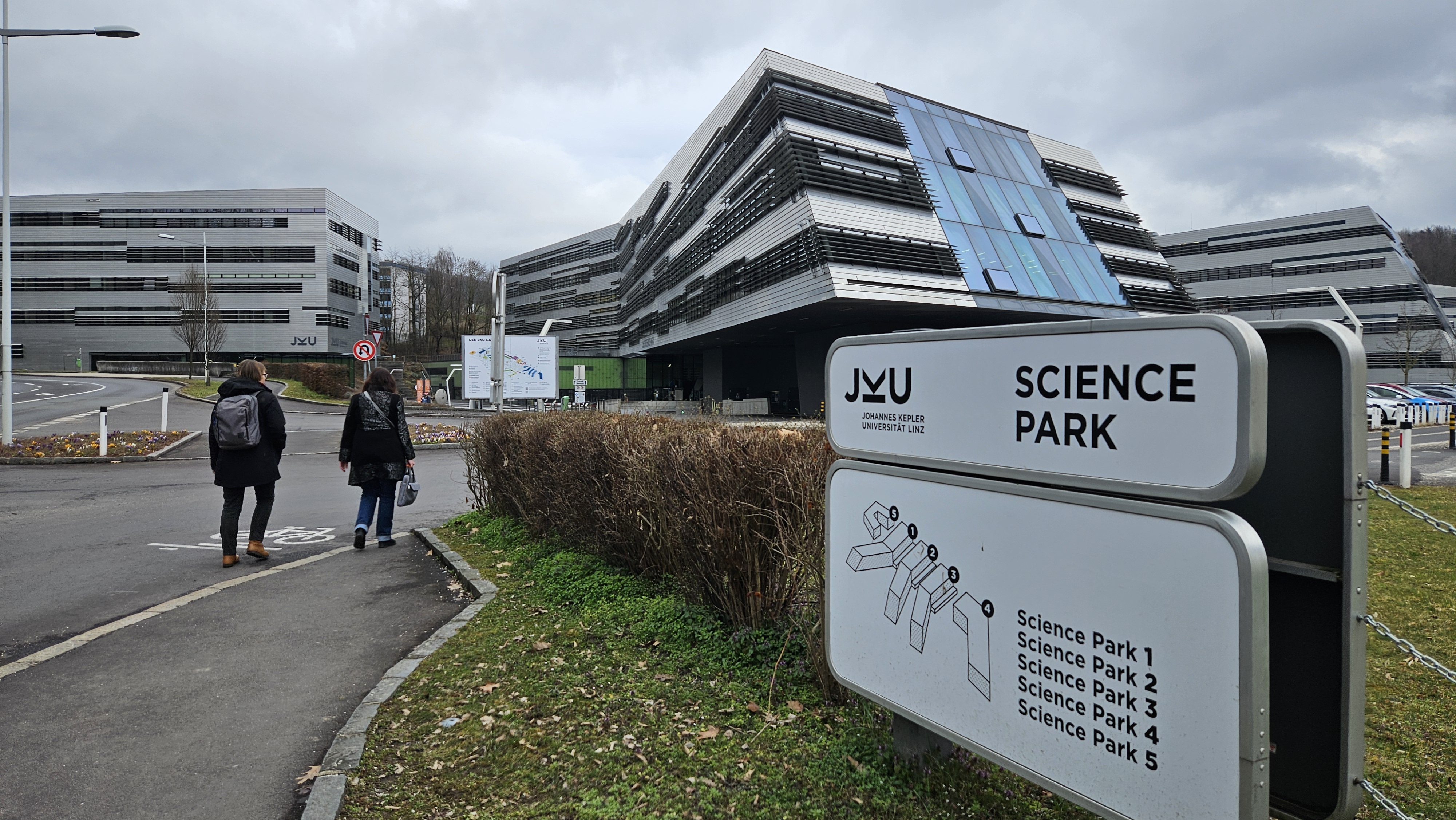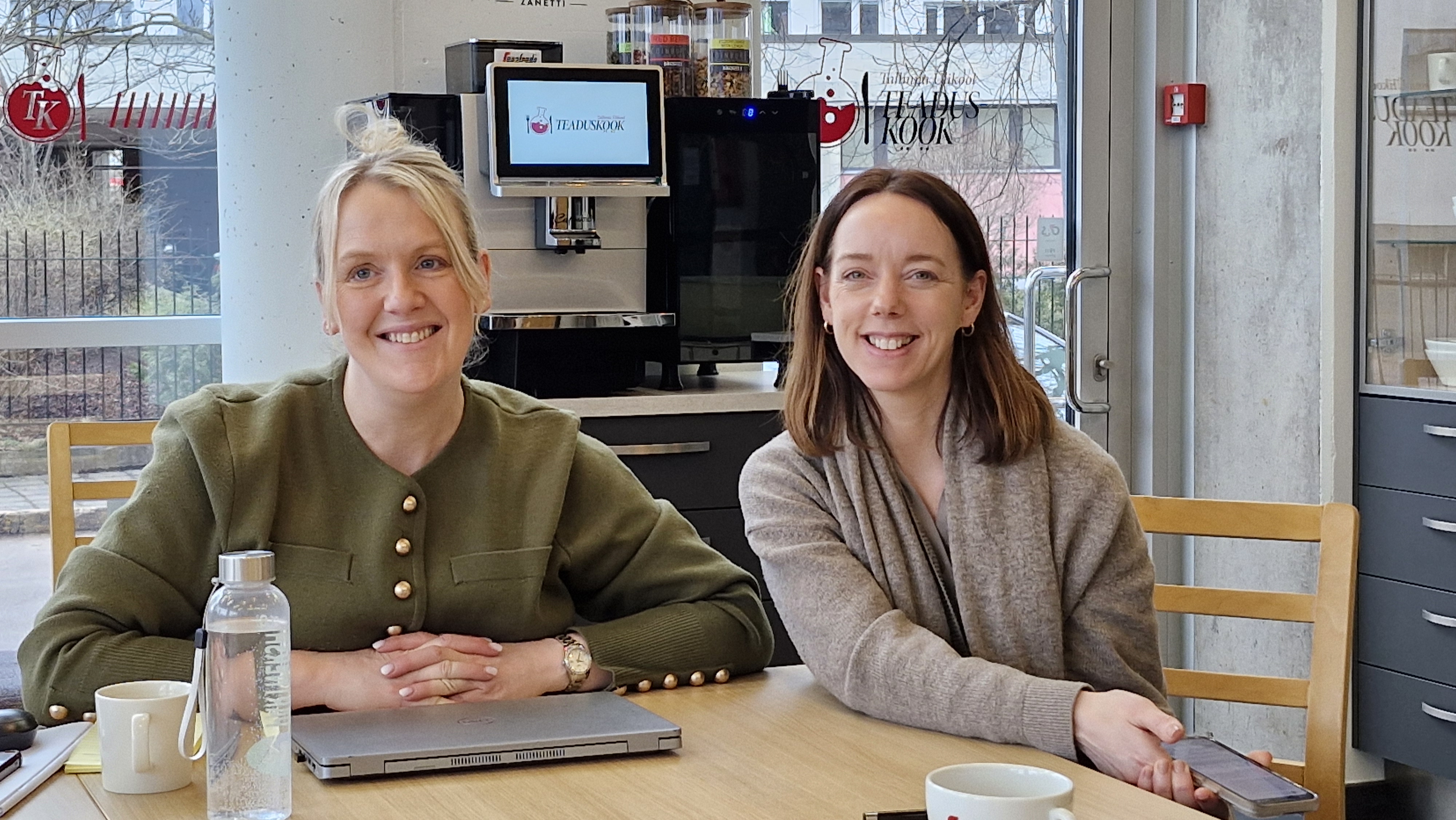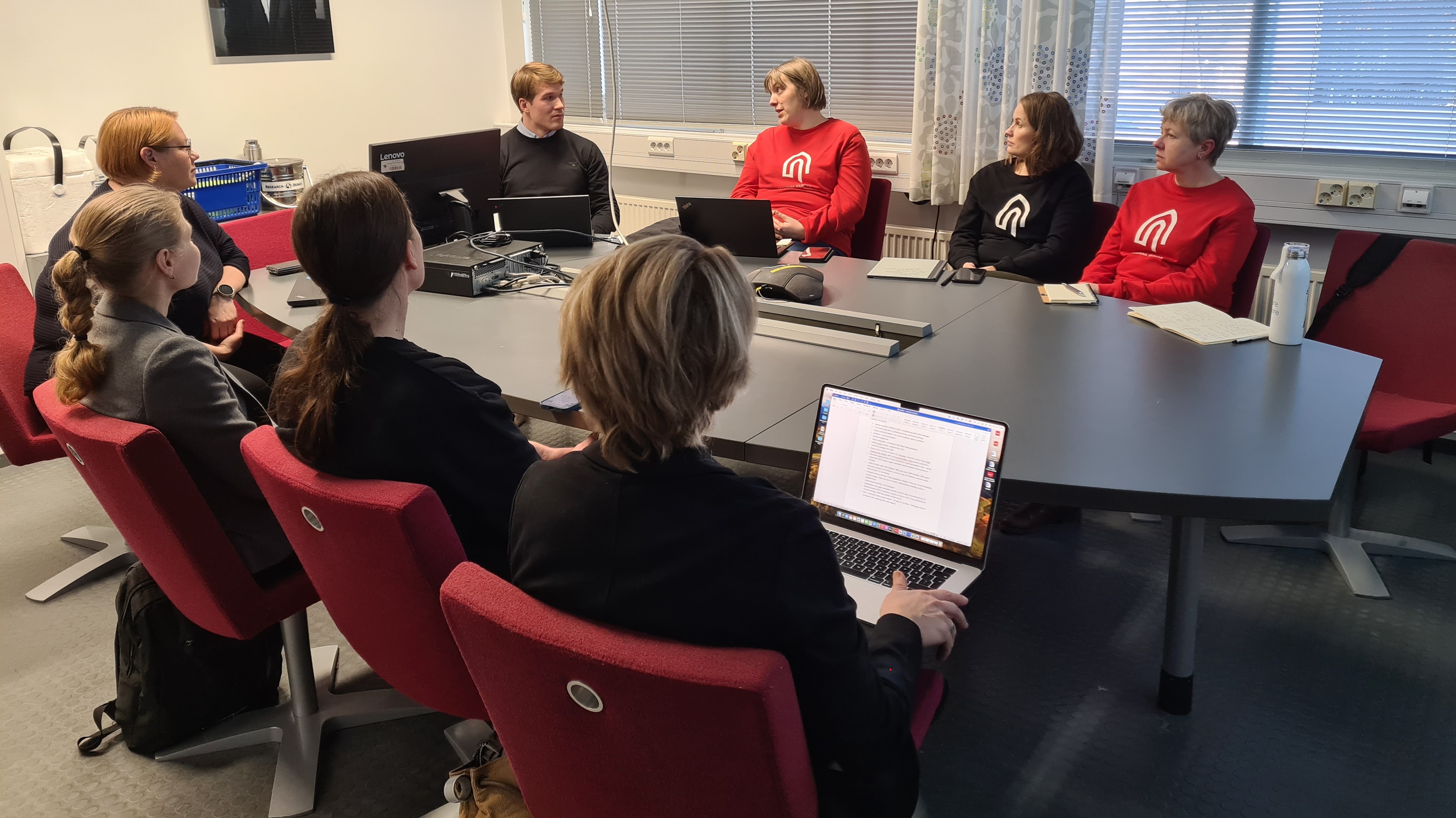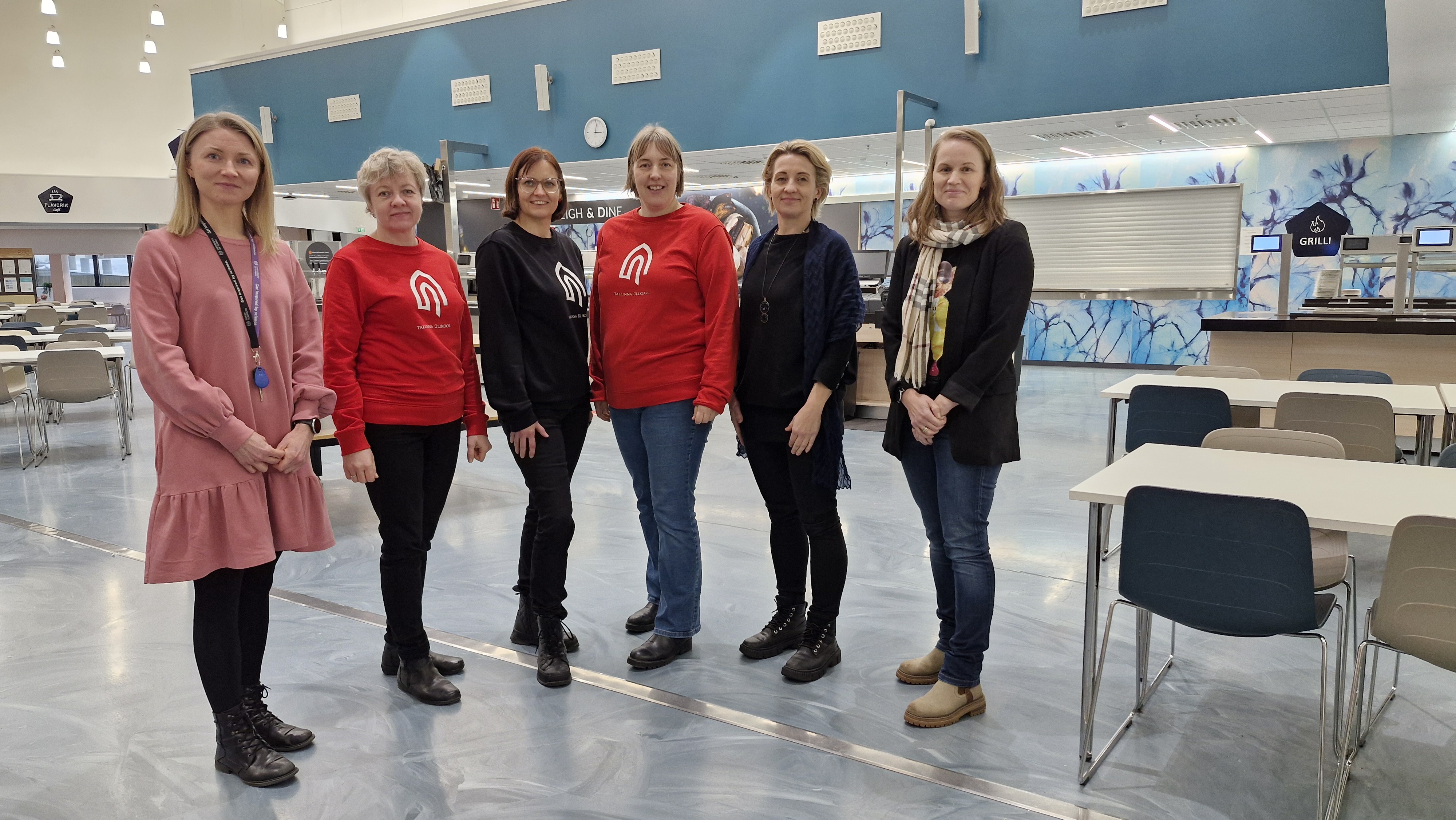Sharee activities
13.-14. of March 2025. Finding Art in STEAM in Austria
Jane Remm and Helen Arov from Tallinn University visited Johannes Kepler University (JKU) Linz on March 13-14, 2025, to explore advancements in STEAM education and research in Austria. They toured JKU’s STEAM labs, attended a PhD seminar, and examined 3D printing and GeoGebra applications in education.
In Austria, STEM pedagogy is referred to as MINT, with the integration of arts called MINT+K (Kunst). Discussions highlighted the broad interpretation of art, which includes visual arts and culture. The STEAM approach at JKU, led by Prof. Zsolt Lavicza, is growing, and the PhD program is notably international. Hands-on methods were explored with researcher Eva Ulbrich, revealing that while 3D printing is a promising educational tool, successful implementation requires careful planning and encouragement. We also discovered GeoGebra, a powerful mathematics education tool developed by JKU researchers.
A key discussion point was the role of the arts in STEAM education. While often viewed as tools for creativity, the arts can also be foundational to STEAM learning. Expanding this role is a focus for Tallinn University and the SHAREE project. Art serves multiple purposes beyond self-expression, including communication and community building. Understanding these roles is vital for effective STEAM education.
Overall, the visit provided valuable insights and underscored the need for interdisciplinary and international collaboration to advance STEAM education.

3.-4. of March 2025. Irish Partners in Tallinn
March began with a fruitful collaboration opportunity as we hosted our Irish partners once again at the Science Kitchen. This time, Amanda McCloat and Helen Maguire joined to give a boost to the activities of the Science Kitchen. Through joint discussions, the concept of the Science Kitchen was enriched both in its core principles and ideas for new actions.

25.-28. of February 2025. Exchanging experiences in Malta
The study visit to Malta provided valuable insights into the integration of home economics, sustainability, and STEM education in schools. We visited three different schools: Sacred Heart Girls’ Secondary School, Immaculate Conception Secondary School, and Dingli Primary School. Gardening and sustainability projects were key elements, with students actively involved in hands-on activities that connected food, nature, and scientific thinking. However, these initiatives were often voluntary and not always aligned with the formal curriculum, suggesting room for greater integration. The success of EcoSkola project-based activities highlighted the importance of community involvement. In addition, we had a chance to observe the lesson at The Home Economics Seminar Center and get an overview of how their activities are coordinated. The Center demonstrated effective management, with clear roles and an efficient online booking system for school visits. The learning programs offered for school groups allowed us to draw connections with Science Kitchen activities. Therefore it was very valuable to exchange practices. The visit underscored the importance of marketing and promoting such activities to raise awareness and foster participation. At the University of Malta we had a good opportunity to introduce Science Kitchen and our projects to students and academic staff.

20th of January 2025. Visits the University of Helsinki
The SHAREE team visited the University of Helsinki to learn from their best practices. The first site of the visit was the home economics learning environment and research group "Food, Culture and Learning" at the Institute of Education (our partners in SHAREE). The research group, which is part of the Maker@STEM community focuses on didactical issues related to the teaching and learning of home economics in different cultural contexts and at different school levels (from primary school to higher education). They are interested in formal teaching and learning contexts, for example in the classroom, but also at home or in NGOs. Impressive are the newly built modern learning spaces (for practicums) in the field of home economics and crafts. These facilities support various forms of cooperation.
Secondly, in the Faculty of Science, we visited ChemistryLab Gadolin, the oldest research center in the Finnish LUMA network and the only one of its kind focusing on providing and popularising chemistry education. Collaborations are also carried out with other labs including Geopiste, Computer Science Class Linkki, Math Lab Summamutikka, Foton Student Laboratory. The truth that love goes through the stomach was once again confirmed! One of the most popular workshops for school children to understand chemistry is ice cream making. So also we made ice cream together. But we started with the links between ice cream making and sustainability; ice cream and climate change; and the carbon footprint of ice cream (e.g. choice between animal vs. plant-based milk). As a result, everyone got a better understanding of the life cycle of ice cream as well as the structure of the science practicum.
One of Gadolin's priorities is to attract and educate the next generation, encourage teachers, and involve young people in the labs. They value learning through experimentation and giving university students versatile practice opportunities. Therefore Master students are included as instructors for student groups. The Helsinki Upper Secondary School for Natural Sciences (HELLU) was established on the university campus recently to bring students even closer to the university. In 2024, Gadolin's activities involved 8,849 students and 3,305 secondary school pupils. 224 children participated in science clubs, 40 in science camps, and 380 science practicums were organized.
We came up with several ideas for Science Kitchen. For example, to cooperate more actively with science labs at Tallinn University, invite more university students to participate in the development of the Science Kitchen, and launch new event formats (e.g. summer camps) to involve students and teachers, as well as opening the Science Kitchen activities to a wider audience. The study visit was attended by: Jaana Taar, Kristi Paas, Tiina Vänt, Elyna Heinmäe, Katrin Männik, and Krinsli Pius.

13th of January 2025. Visiting the Flavoria living lab at the University of Turku
New Year started for SHAREE with a visit to the Flavoria Research Platform, a living laboratory coordinated by the Nutrition and Food Research Centre (NuFo) at the Faculty of Medicine. However, most of the university's faculties (both in terms of budget and researchers) contribute to Flavoria's activities, as well as various collaborative partners.
Flavoria is a multidisciplinary research platform and at the same time a unique lunch restaurant, café and snack shop. Adjacent to the lunch restaurant is the multidisciplinary research space called Aistikattila. There, a screen covering an entire wall can be used to create a rapidly changing environment, adding also voices to create a new situation. NuFo research focuses on human well-being and sustainable development, more specifically on food behaviour and multisensory perception, food choices and food waste. It is an intervention research where scientific data is collected on a daily basis form customers (then processed and applied), new products and services are tested in a cafeteria setting, and a multi-sensory environment is used both for research and learning activities. Collaboration is done with the whole university family, businesses, local government, Business Finland (the start-up and growth business ecosystem in Finland), etc.
What did we learn? We had lunch in a university restaurant and gained a rich user experience. Our lunches, weighed by food components, were also added into the database. We got a lot inspiration from the discussions and the guided tour of the restaurant. For example, what models work well for working with the local community? The Science and Gastronomy Food Clubs are held by NuFo eight times a year as two-hour meetings in a hybrid format, in three cities (Turku, Helsinki and Seinäjoki) at the same time. There is always one topic on the table (e.g. rye, tomato), two presentations (about cultural history and natural science) are done, experiments done, followed by a sensory evaluation and a discussion on the results. One of the highlights of the year is the Flavoria Innovation Festival. Last year a five-day programme involved 60 students and 5 companies who presented innovation challenges to student teams. Similarly, Science Kitchen needs few recognizable activities every year that the local community, including the university, companies, city representatives and others look forward to and contribute actively. Research is at the heart of the Flavoria, therefore we foresee various collaboration opportunities with them in the future (e.g. in European projects). The study visit was attended by: Jaana Taar, Kristi Paas, Tiina Vänt, Elyna Heinmäe and Katrin Männik.
